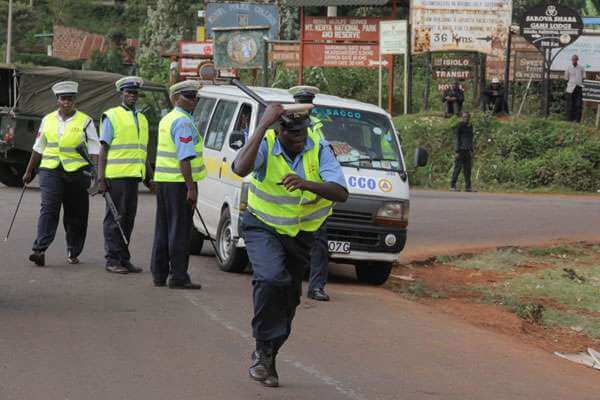A third Kenyan irregularly recruited into the Russian army has been rescued and flown back home. The man, identified as Kevin Kariuki Nduma, had been conscripted into Russia’s war effort against Ukraine before being traced and repatriated by Kenyan authorities.
His case exposes a dangerous recruitment network that has been quietly targeting desperate young Kenyans with fake promises of employment in Moscow. Instead of jobs, they end up in the brutal war front, trapped in what now appears to be an elaborate human trafficking syndicate.
Kenya’s Principal Secretary for Foreign Affairs, Korir Singoei, confirmed the rescue and urged citizens to avoid dubious contracts abroad. “We implore Kenyans to exercise all diligence in verifying the authenticity of any foreign employment contracts and to seek advice from the Ministry, particularly our Diaspora State Department, should they have doubt,” he said.
Nduma’s rescue is not an isolated case. Dozens of young Kenyans are believed to have already been trafficked into Russian ranks, with some killed and others returning home injured, traumatised, and in need of medical care.

How Desperate Kenyans Fall Into the Russia Army Trap
Investigations show that recruitment begins with adverts for well-paying jobs in Moscow. Unsuspecting youths are asked to pay large sums for processing fees, passports, and tickets. They are then sheltered in apartments in Athi River and Nairobi while awaiting “travel.”
But the jobs never exist. Once in Moscow, the victims are pushed into military conscription, with many deployed to the front lines in Ukraine.
The latest rescue operation saw 22 Kenyans freed from rented apartments in Great Wall Gardens estate, Athi River. They were being processed for travel to Russia before security agencies intervened. Police recovered multiple passports and other documents from the scene.
One of the victims who had already returned from Russia is now admitted at Kenyatta National Hospital. He is set to undergo surgery after suffering serious injuries while serving in the war.
Who Facilitates the Trafficking Network?
The recruitment of Kenyans into the Russian army is not a random crime. Authorities believe it is run by an organised cartel with international connections and possible protection from rogue officials.
One of the key suspects, Edward Kamau Gituku, was arrested in Machakos County on September 25, 2025. He is accused of running several safe houses where recruits were held before being trafficked. The Directorate of Criminal Investigations (DCI) has linked him directly to the illegal trade.
Gituku is currently detained at Muthaiga Police Station, with the court granting investigators ten more days to complete their probe. Police are combing through seized phones and documents for evidence of communication with international handlers.
Alongside local operatives, foreign nationals have also been implicated. A Russian citizen, Mikhail Lyapin, was recently deported from Nairobi after being linked to the syndicate. He was briefly questioned by the DCI before being put on a flight out of Kenya.
While the Russian embassy has denied any direct involvement, its silence on how Kenyan youths end up in Moscow’s military has raised questions. Officials now believe rogue security officers may be facilitating safe passage of the victims, shielding traffickers, or even profiting from the trade.
Government Response and Growing Pressure
Kenya has begun taking a tougher stance against foreign involvement in the trafficking racket. Lyapin’s deportation signaled a rare diplomatic rebuke against Russia, coming after pressure from families of victims and local rights groups.
The Ministry of Foreign Affairs has also stepped up its warnings to citizens. Officials are urging job seekers to verify offers with government agencies before traveling abroad. The Directorate of Criminal Investigations has widened its probe into the syndicate and is closely monitoring recruitment cells across Nairobi and surrounding towns.
But activists say more needs to be done. They point out that traffickers have been operating for years without serious disruption, suggesting collusion within Kenya’s own security ranks. Until officials openly address the role of rogue officers, the network may continue to thrive.
Lives Already Lost to Russia Army Trap
The cost of the Russia Army Trap is already visible. Two Kenyans who returned from the war are bearing scars of torture and battle injuries. One remains hospitalised, while others are said to be struggling with deep psychological trauma.
Families of missing youths say they are yet to get clear answers from the government. Some fear their children may already be dead in Ukraine. Others are begging for official intervention to trace them before it is too late.
Kenya’s challenge is not just about saving those already in Russia. It must dismantle the trafficking networks at home, cut ties with their foreign accomplices, and hold rogue officials accountable.
Every new case proves that the Russia Army Trap is not slowing down. Unless authorities crack the cartel with urgency, more young Kenyans risk being shipped into a war that is not theirs, only to return in coffins or broken beyond repair.











































